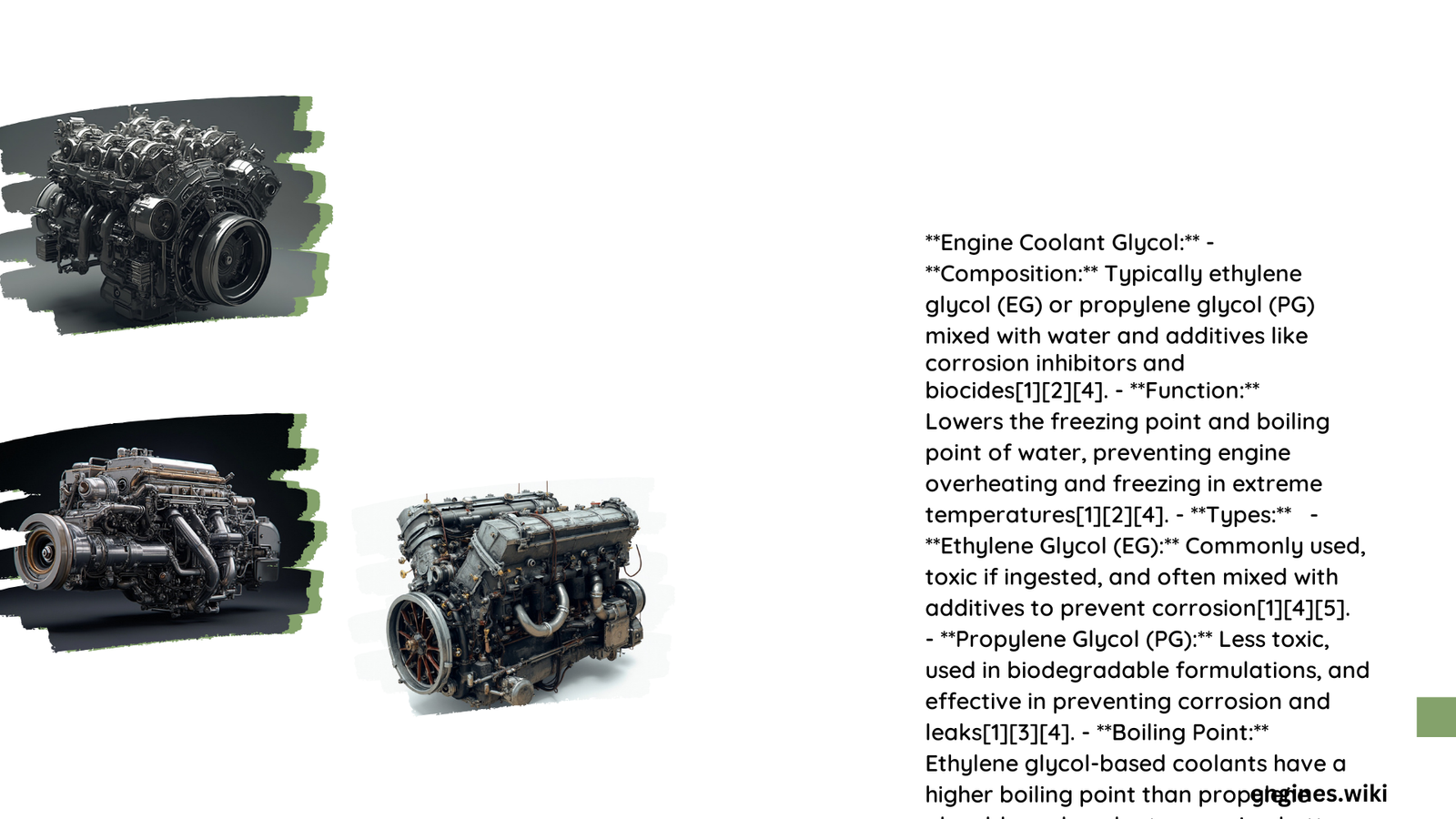Engine coolant glycol represents a sophisticated thermal management solution critical for maintaining optimal vehicle engine performance. This specialized fluid combines chemical properties that enable precise temperature control, preventing freezing in winter and overheating during intense operational conditions. By understanding its complex characteristics, automotive professionals and vehicle owners can ensure superior engine protection and longevity.
What Makes Engine Coolant Glycol Essential for Vehicle Performance?
Core Properties of Engine Coolant Glycol
Engine coolant glycol possesses unique thermal characteristics that make it indispensable in modern automotive systems. Its primary functions include:
- Temperature Regulation: Maintains consistent engine temperature
- Corrosion Prevention: Protects metal components from degradation
- Heat Transfer: Efficiently dissipates excess thermal energy
Comparative Analysis of Glycol Types
| Glycol Type | Boiling Point | Freezing Point | Toxicity | Environmental Impact |
|---|---|---|---|---|
| Ethylene Glycol | 197.6°C | -13°C | High | Non-Biodegradable |
| Propylene Glycol | 188°C | -59°C | Low | Biodegradable |
Why Choose Specific Engine Coolant Glycol Concentrations?
The optimal glycol concentration typically ranges between 50-70%, balancing critical performance parameters:
- Thermal Stability: Prevents extreme temperature fluctuations
- Corrosion Resistance: Provides comprehensive metal surface protection
- Flow Characteristics: Ensures smooth circulation through cooling systems
How Do Different Glycol Types Impact Engine Performance?
Ethylene Glycol Advantages
Ethylene glycol remains the most common engine coolant glycol, offering:
– Superior heat transfer capabilities
– Excellent freeze protection
– Wide temperature tolerance
Propylene Glycol Considerations
Propylene glycol presents alternative benefits:
– Lower toxicity profile
– Environmentally friendly composition
– Suitable for sensitive applications
What Factors Influence Coolant Glycol Selection?
Critical selection criteria include:
– Ambient temperature range
– Vehicle manufacturer specifications
– Environmental regulations
– Specific engine design requirements
Best Practices for Engine Coolant Glycol Maintenance
Recommended maintenance strategies:
– Regular concentration checks
– Annual coolant system inspections
– Proper mixing ratios
– Timely fluid replacement
Technical Recommendations for Optimal Performance
- Maintain 50/50 glycol-water mixture
- Use manufacturer-recommended coolant
- Monitor coolant condition periodically
- Replace according to service intervals
Conclusion

Understanding engine coolant glycol’s intricate properties enables precise thermal management, ensuring vehicle reliability and performance across diverse operational environments.
